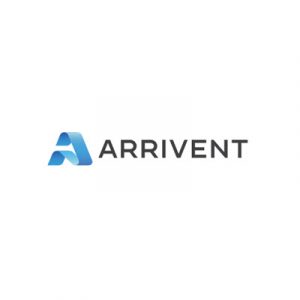
BC3 Technologies Receives FDA Clearance for SEAL Hemostatic Wound Spray
By Alex Keown
April 3, 2023
The U.S. Food and Drug Administration cleared an aerosolized wound treatment developed by privately-held BC3 Technologies. The greenlight paves the way for the Baltimore-based medical device company to begin commercializing the treatment.
BC3’s SEAL Hemostatic Wound Spray is an aerosolized chitosan for the rapid management of serious arterial hemorrhage. When sprayed on a bleeding wound, BC3’s proprietary aerosol delivery system SEAL forms a tight barrier that stops bleeding within seconds, pain-free. Due to its novel spray design, SEAL can be applied directly to complex 3D wound architectures and can be forced into openings, such as gunshot wounds, BC3 Technologies announced. A company spokesperson said the SEAL cans are designed to be used as a one-time product. He noted the spray is exhausted in seconds when it is applied to a wound.
Chitosan, a linear polysaccharide composed of randomly distributed β-linked D-glucosamine and N-acetyl-D-glucosamine, can adhere to fibrinogen, proteins involved in the clotting process, which produces increased platelet adhesion. That results in the clotting of blood and hemostasis.
SEAL was developed for emergency situations, surgical environments, and for the battlefield where response time to hemorrhaging is the critical difference between life and death. It is estimated that approximately 40% of critically wounded people with arterial bleeding die in transit to the hospital. Bleeding wounds, including gunshot wounds, that cannot be treated with standard methods, such as applying pressure with bandages, remain a leading cause of potentially preventable deaths.
Wayne Grube, chief executive officer of minority-owned BC3 Technologies said there is a critical need for new wound treatment options for first-responders and other emergency medical situations.
“This clearance by the FDA puts SEAL wound spray in the hands of paramedics, police officers, doctors, military personnel, and other front-line emergency responders who deal with hemorrhage-related trauma every day. Among other traumas, we believe SEAL has significant potential in combating serious injury and death from gunshot wounds with the terrible rise of gun violence in the United States today,” Grube said in a statement.
Preliminary studies, including those conducted by the U.S. Army Institute of Surgical Research, demonstrated the efficacy of SEAL. The FDA gave BC3 Technologies 510(k) clearance for the wound treatment based on positive data that showed treatment with SEAL resulted in 50% less blood loss than other chitosan-based dressings or granules.
Pivotal trial data showed SEAL was therapeutically equivalent to other chitosan-based products indicated for hemorrhage. Additionally, the data showed that SEAL reduces the risk of infection in the wound by preventing the growth of harmful bacteria.
One advantage SEAL has over other granule-based chitosan products is it can be applied under windy and wet conditions and in low light, the company noted. The product is compact, easy to carry, and can be administered by first responders, patients, professional medical staff, or caregivers.
Following the 501(k) clearance, SEAL is now available by prescription in the United States. The company predicts the wound treatment will soon be available for over-the-counter use. BC3 Technologies has also entered a strategic partnership with a South African distribution partner for the African continent. The company is working on a formulation of the wound spray for veterinary use.
BC3 plans to produce between 50,000 and 100,000 cans of the spray by the end of 2023 and expects an OTC version within 12 months. The cans will be available in two sizes. One size sprays for about three seconds and is considered ideal for stab and bullet wounds. The larger 10-second can is expected to be available for wounds larger than four inches or for appendages that have been severed.







